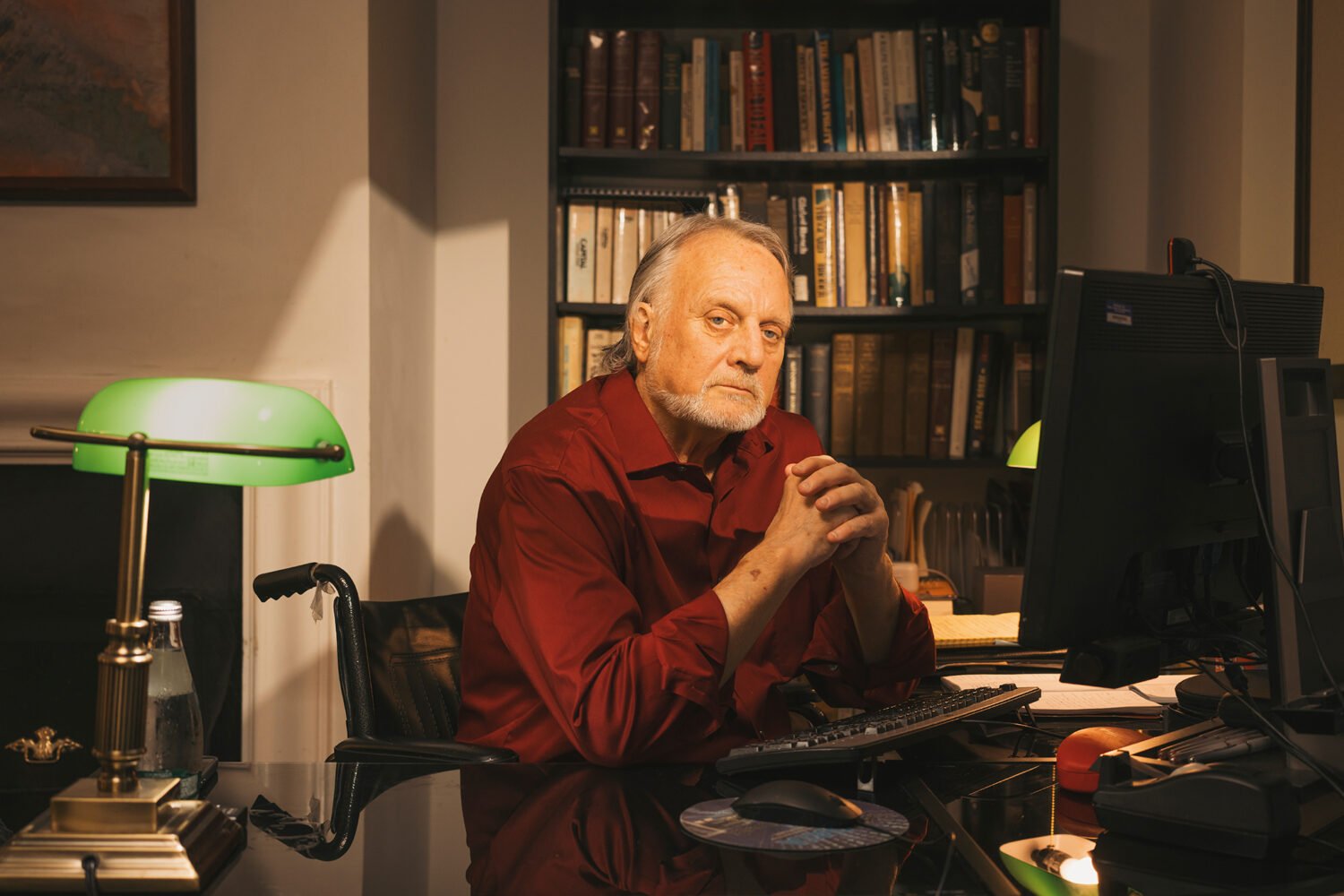Contents
- 1. Lisa Lafontaine, Humane Rescue Alliance
- 2. Jason Reynolds, Author
- 3. Lisa Herrick, Psychologist
- 4. Rebecca Lee Funk, the Outrage
- 5. Michele Norris, Race Card Project
- 6. Nate Mook, World Central Kitchen
- 7. Osamuyimen Igbinosa, Physician
- 8. Ali Cherry, Comedian
- 9. Lela Singh, Teaism
- 10. Mariann Edgar Budde, Episcopal Bishop
- 11. Tim Kaine, Senator
- 12. Laurie Thompson, National Zoo
- 13. Kadija Ismail, Student
- 14. Maria Manuela Goyanes, Woolly Mammoth Theatre Company
- 15. Tony Tomelden, Bar and Restaurant Proprietor
As this year of knee-buckling horrors draws to a close, it’s tempting to want to forget much of what we’ve been through and just move on already.
But 2020 had its share of good, too. Neighbors helping neighbors. The heroism of frontline workers. Strangers marching together for racial justice. City dwellers developing a greater appreciation for the healing power of nature.
There are things, in other words, to be thankful for. So we asked dozens of notable Washingtonians: What are you most grateful for? You’ll find their answers here.
Yet even before the plague reminded us of how interconnected we are, gratitude had seeped into the zeitgeist. What is it, really? (It’s not just saying thank you.) What are its benefits? (It might surprise you how much is scientifically known.) And how does one practice gratitude? (It’s more than #grateful.)
Which is all to say that, as a subject, gratitude is no longer just for conversations around the Thanksgiving table (though it’s nice there, too). “If you could bet on something that would have a huge greater good for the planet,” says Todd Kashdan, a professor of psychology at George Mason University, “put your money on gratitude.”
1. Lisa Lafontaine, Humane Rescue Alliance
President and CEO of the nonprofit, which protects and advocates for animals

In a year when so many people have adopted animals, what are you most grateful for?
In the early days of the pandemic, our first belief was that dozens of animals would be surrendered to shelters because families couldn’t care for them. But those animals never really came. The animals [that did come into the shelter] were only with us a few days. Either the owners recovered from Covid or a family member or friend came to get the animal. If this had happened 15 years ago, we may have seen dozens of surrenders. This has been an affirmation of the advocacy we’ve been doing for years about animals’ place in society and their place in the family. I’ve been deeply moved by people not wanting to give up their pets.
There were a lot of people who adopted. What hasn’t been covered as much and what really blew me away was the number of people in the Washington area who volunteered to foster. We had 2,000 who offered to take in animals. We didn’t have enough animals to give to everybody. I’ve thought a lot about why that happened, and I think people felt so helpless and this was something they could do for the community.
What that created was a steady bench of people who could take in animals that never spend time in a shelter. This is the future of our work. We are rethinking everything we do in terms of institutional housing of animals. We are looking at how big we can build our foster systems so animals don’t have to be in institutions again. We will never go back to the way we were before, back to the way animal shelters operated. This has been a turning point.
Back to Top2. Jason Reynolds, Author
Bestselling author of YA fiction, and Library of Congress’s National Ambassador for Young People’s Literature, who recently coauthored Stamped: Racism, Antiracism, and You, a history of racism for young adults
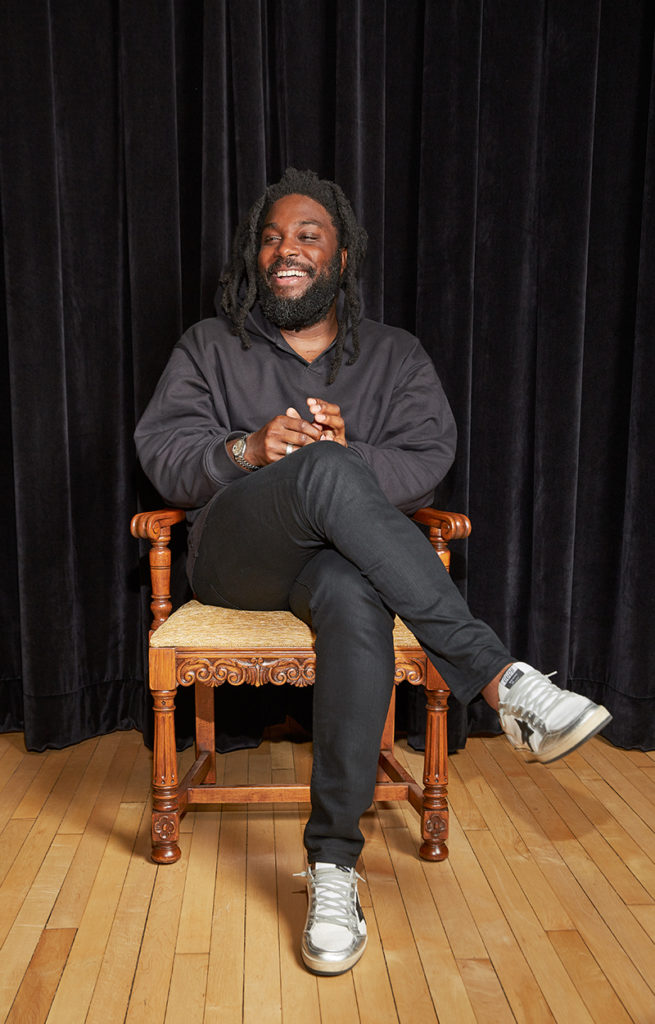
How do you like to express gratitude?
I really, really, really enjoy a good gushing. I’m the kind of person who likes to look you in the face, whether it be on Zoom or whether I stand six feet away, and just tell you how I feel. I think it’s important that we tell people we love them. I say it to kids all the time. Especially men, especially men, because men get so uncomfortable with it. Even if people are uncomfortable or stammer for a moment, they’ll usually return it.
What’s the most memorable thank-you gift anyone has given you?
Kobe Bryant sent me a pair of sneakers. This was a couple months before he died. He started a publishing company, he was trying to get me to work with him, and I didn’t have the time, but we stayed in touch. His daughter Gianna was a big fan. [The sneakers are] all gold. The Nike Air Max 1. All gold. The sole, the shoes, the laces, the toe box, the tongue. I’ve never worn them. I’ll never wear them.
Back to Top3. Lisa Herrick, Psychologist
Clinical psychologist and divorce coach who has been working with lots of unhappy people and couples since the pandemic
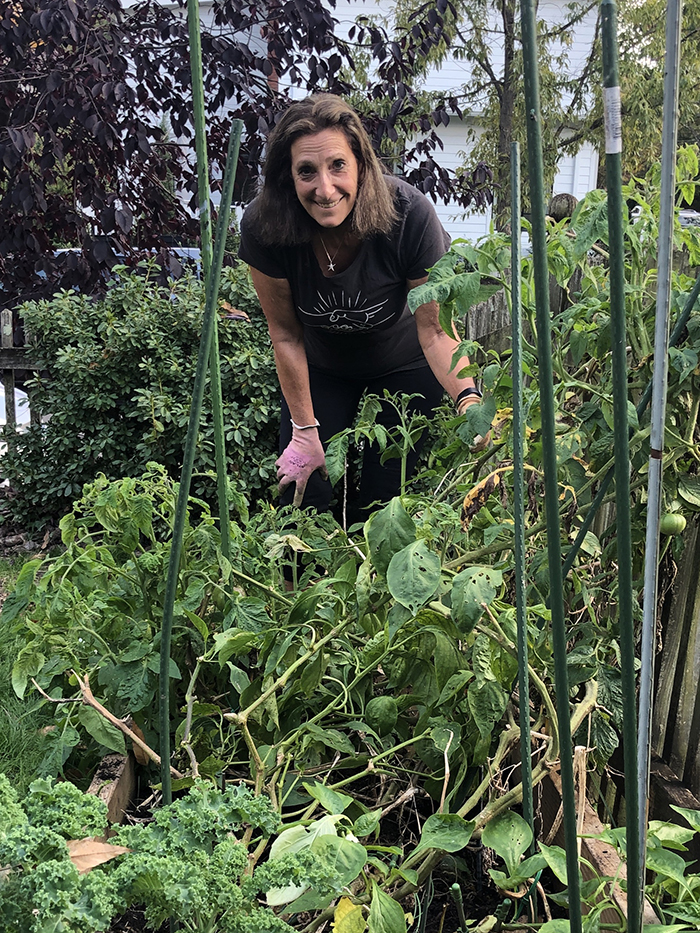
Are there ways you’ve personally found gratitude during this time that you’ve tried to impart to your clients?
I had never planted a garden before, and then I did and I was grateful for the tomatoes. I don’t necessarily say to my clients, “You should garden.” I just say, “What will bring you a little bit of joy this week?” I think people are just encouraged by the idea—it’s a cliché by now—of taking it step by step.
There was a New York Times column recently by a woman who races sled dogs. Basically, what she said is sometimes you don’t know how long you’re going to have to ask these dogs to run, and the way you help them run a thousand miles is you take care of them in advance. I thought that was incredibly helpful. I’ve talked to some clients about that. We all need to take care of ourselves proactively. Before you feel burned out, take a rest. Before you feel lonely, reach out. I’m very grateful to [the author]. It’s an extremely helpful concept.
Back to Top4. Rebecca Lee Funk, the Outrage
Founder/CEO of the community space and shop for progressive activists
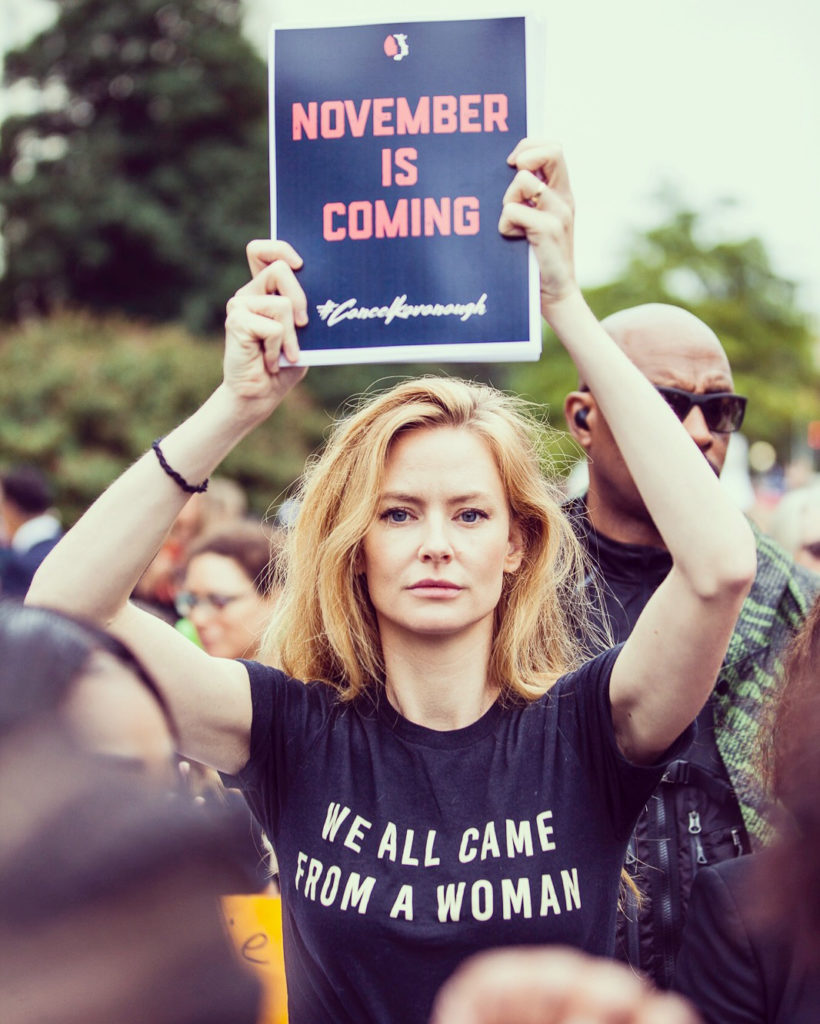
Amid all the political turmoil, plus the stress of being a small-business owner right now, what have you found to be grateful for?
Our community. We’ve had members reach out and say, “How can I donate to the Outrage to make sure you’re here post-pandemic?” It’s so hard seeing all of these businesses fail on 14th Street, which is where we are. I know what it is to build something. I’m so grateful for the community that has rallied behind us to keep us afloat.
Back to Top5. Michele Norris, Race Card Project
Columnist for the Washington Post, founding director of the Race Card Project, and former host of NPR’s All Things Considered
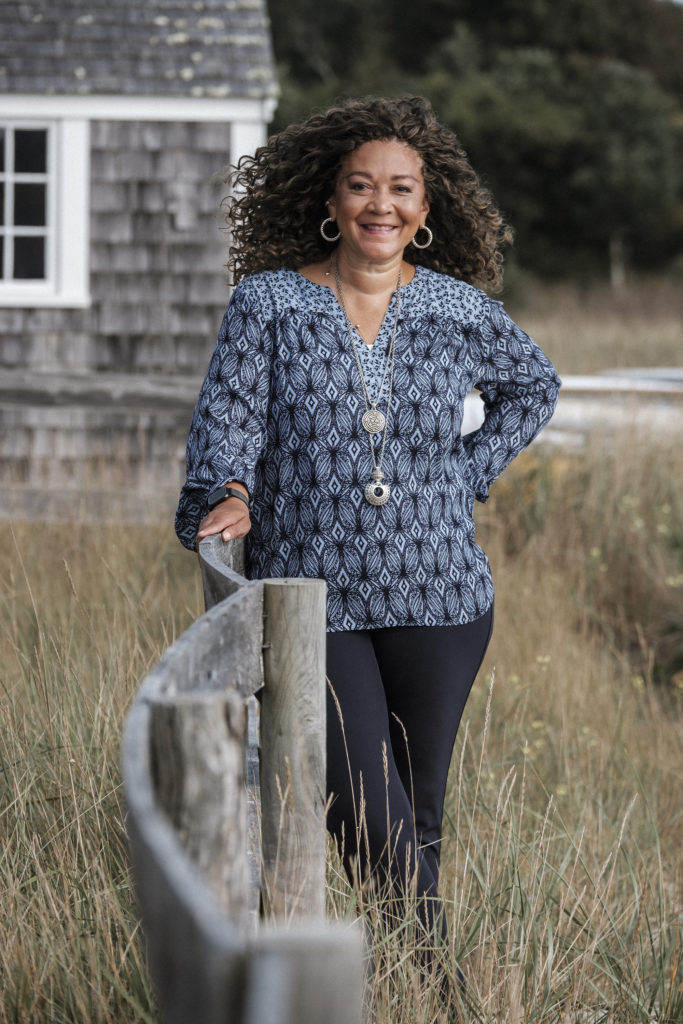
Is there a way you regularly practice gratitude?
When we’re on vacation, we have a habit of taking a big urn and a little notepad with a pen, and throughout the time we’re all together as a family, we will write down the things that make us happy and the things for which we are grateful. I realized in this [pandemic] that a practice like that should not just be reserved for vacation. I’m endeavoring to introduce that into our daily lives so we capture even the smallest moments of joy: The toast came out of the toaster just right. I sat down for tea, and there was a bluebird or a cardinal outside the window. Or I saw a rabbit scamper across the lawn. Just the small things that bring moments of either joy or gratitude.
What are you most grateful for?
I am really grateful that I was raised by parents who helped me understand that you can love a country even if you don’t love its history. My parents loved a country that did not love them back. They were deeply patriotic—my father in particular. There were flags in our garden and flags everywhere, even though he was a World War II veteran who served in a segregated unit; grew up in Alabama and dealt with all the Jim Crow laws; moved to a neighborhood in Minneapolis and watched his neighbors all put their houses up for sale.
It would be easy for my parents to have a hardened view about the country they called home, yet they believed in America’s promise. And they passed that on to their kids. In a really divided moment, I’m thankful that I have that foundation. That you can love America even if you don’t love America’s history, and part of loving America is asking her to live up to her promises spelled out in our Constitution and in our core beliefs.
Back to Top6. Nate Mook, World Central Kitchen
Executive director of WCK, founded by chef José Andrés, which has mobilized restaurant workers and volunteers to serve more than 30 million meals nationwide during the pandemic, including 900,000 and counting out of Nationals Park
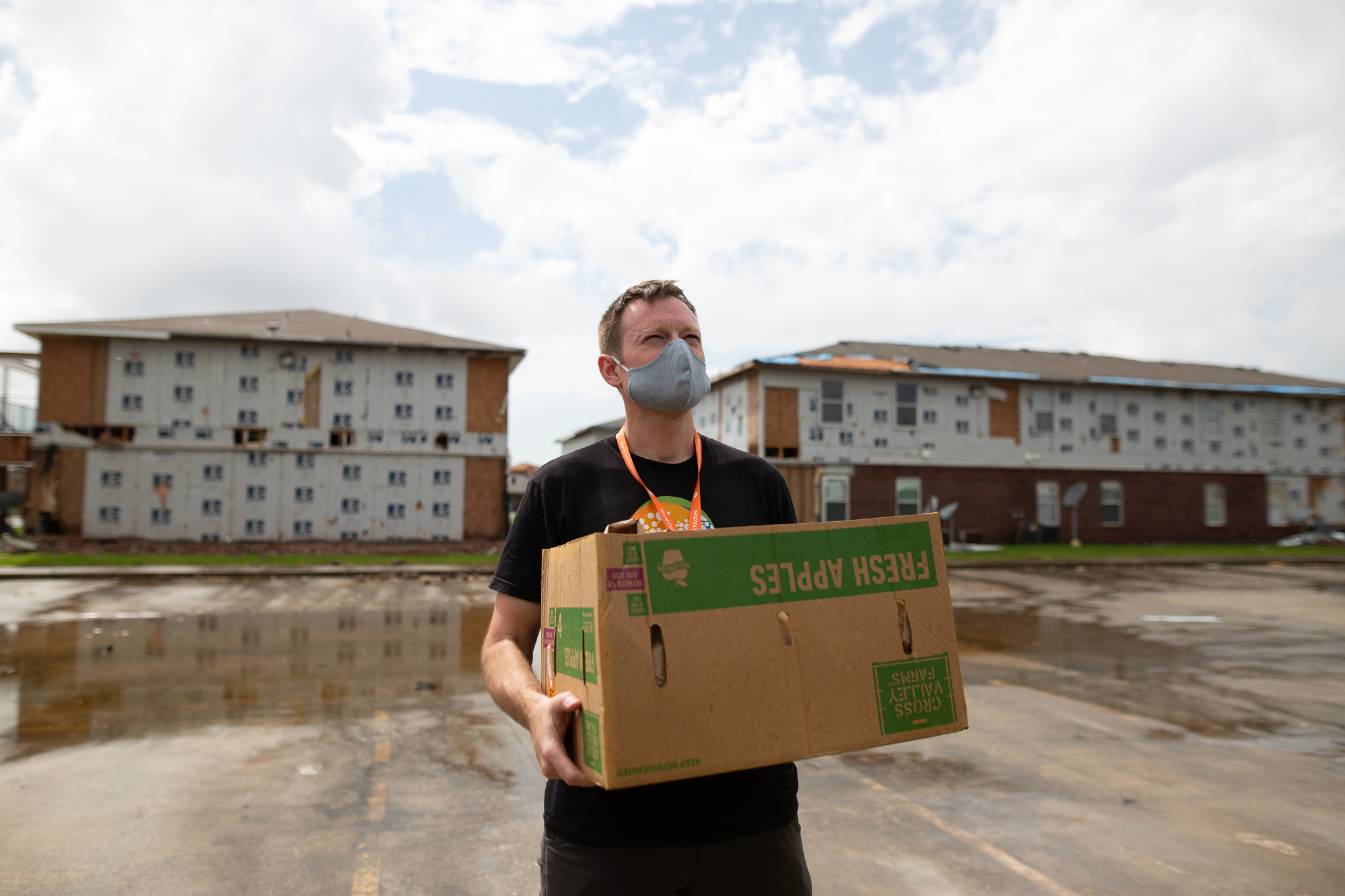
What are specific things you’ve been grateful for?
Individuals who are able have really stepped up to support their neighbors. We often say that in the darkest moments, in the middle of disasters—big hurricanes, wildfires—you see the best of humanity, because everything gets stripped away. All the noise, all the politics. When it’s just human beings there for each other, it’s quite beautiful.
Back to Top7. Osamuyimen Igbinosa, Physician
MedStar Washington Hospital Center infectious-disease doctor who has been treating Covid-19 patients
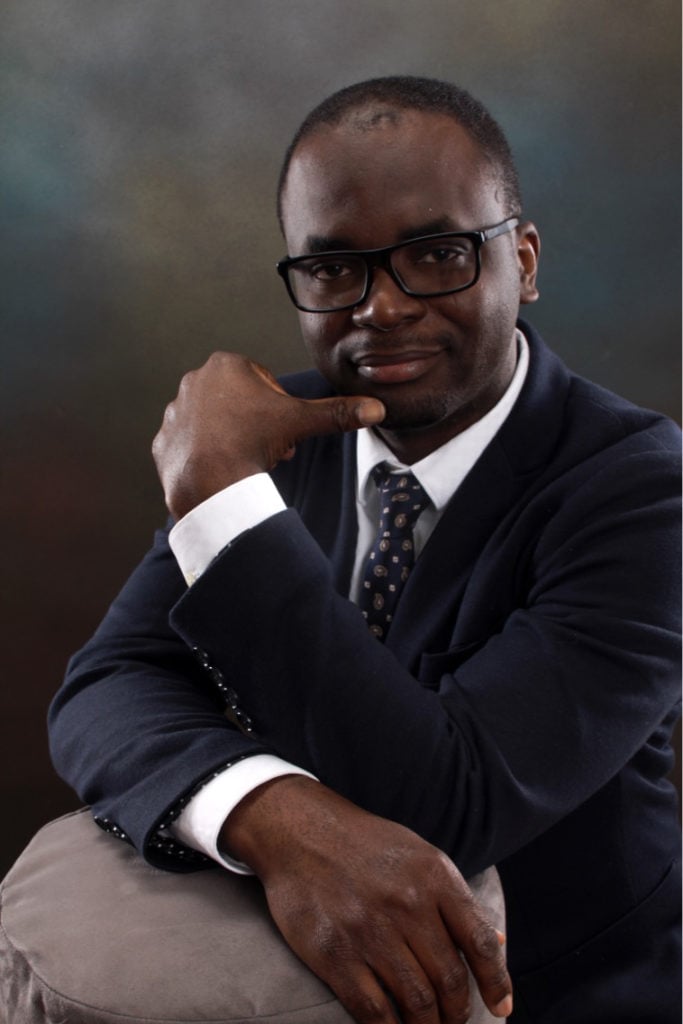
How are you practicing gratitude?
Thinking back to March and early April, a lot of physicians were depressed, including me. You had the sense that nothing you do works. People were dying, a large number. I lost count. And they were dying without their family members. That was really depressing. I [finally] had the courage to talk to a coworker who’s also an infectious-disease physician. I realized that I wasn’t alone. She had the same anxiety I had. That was when we devised a strategy that we shouldn’t just dwell on the sad parts. We should pick one thing we are grateful for every day and share [it] with each other. That’s really helped both of us. She calls me and says, “I’m not going to tell you all of the bad news today—I’m going to tell you the good news. That patient we started Remdesivir for was extubated.” We started to see that although we thought we weren’t doing any good, we actually did some good.
What does it mean when you receive a thank-you from a patient?
It means a lot. We don’t expect a thank-you from anyone, to be honest. We do our work, the patient is discharged, and that’s it. But when we hear “thank you” from a family member, from a patient who almost died, someone saw how much effort we went through to make sure the person lives. It keeps us going.
Back to Top8. Ali Cherry, Comedian
Standup comedian and therapist-in-training who runs the DC Writers’ Salon
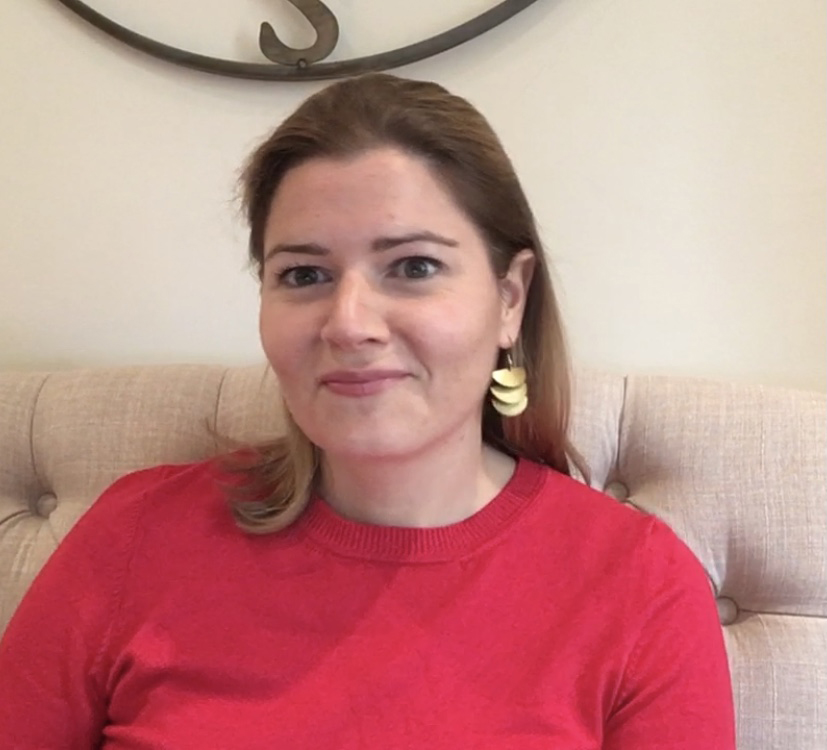
What are you grateful for?
The number-one thing is [one of the salon’s groups]—we call ourselves the Morning Poppins [after Julia Cameron’s “morning pages” writing exercise]. It meets [virtually] from 8:30 to 9 am every single day to write freehand, whatever comes out of your brain. It’s been an incredible source of lightness and connection. People say it’s one of the most positive things they’ve gotten from the pandemic—that’s my favorite part, hearing how important it is to people. I feel really lucky that [even though] I live alone, I haven’t really felt lonely during this pandemic because of these connections.
How do you practice gratitude?
When I find pennies, nickels, dimes, sometimes dollars, I practice writing a gratitude for every cent and put the coins in a gratitude jar. I do that every day. I write down things like sitting in Logan Circle in the sunshine reading a book, or the HelloFresh meal delivery, going for bike rides. I just bought a new jar because it’s about to be full.
Back to Top9. Lela Singh, Teaism
Social-media manager at the tearoom/restaurant Teaism, whose Lafayette Square location was damaged during the George Floyd protests in June
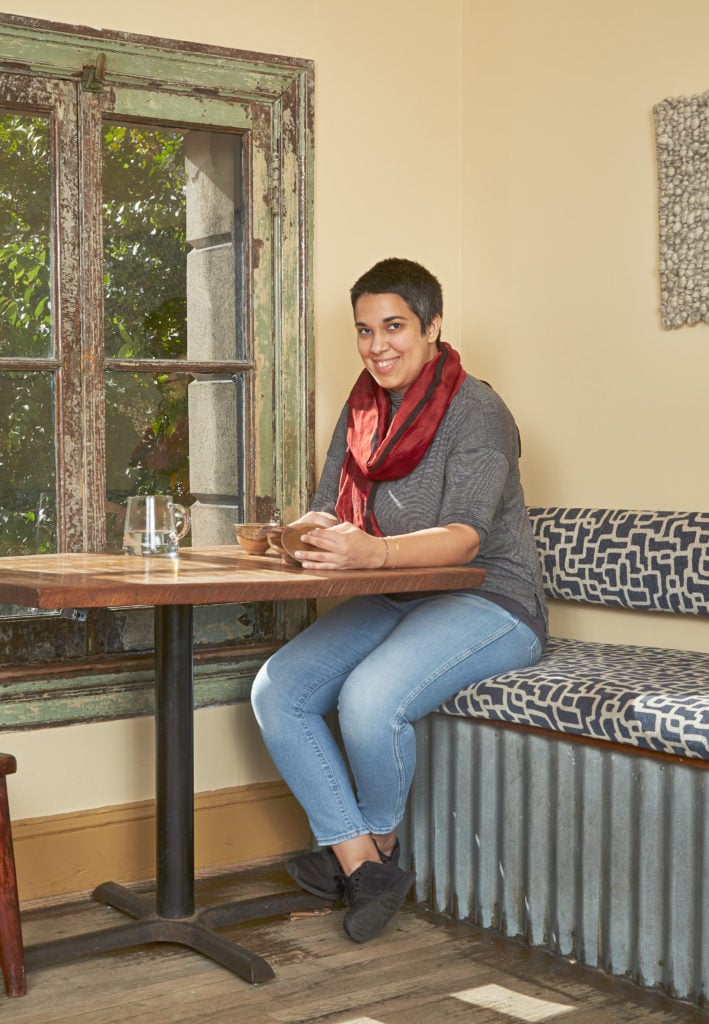
When your Lafayette Square location was burned during te George Floyd protests, your mother, Michelle, who is a co-owner of Teaism, quickly took to Twitter to say “Black Lives Matter.” How did you all manage to find gratitude during such a setback?
I feel like I was just knocked on my ass for a month, but we heard from so many people reaching out to share kind words, and it was really validating. I don’t want to say it was a blessing in disguise, because nobody wants to be dealing with a fire in the middle of a pandemic, but we were shown so much love.
How have you been sharing gratitude through these troubling times?
It’s not always easy to feel grateful, because things are so messed up. I started these Instagram stories [on the Teaism Instagram], right after we had to shut down all of our locations, where I’m documenting my tea drinking every day, with shots of the tea pouring really slowly into the cup. I’ve been hearing from people saying, “This was my moment of Zen for the day,” and in a lot of ways it’s become my own meditation on gratitude. I’m not very good at meditating—I end up ruminating a lot instead. But making tea is like a moving meditation. You can hear water pouring. You can appreciate the light hitting the liquid, the steam rising. It engages every sense. At the end of it, I come out more centered, more grateful, and more ready to start the day.
Back to Top10. Mariann Edgar Budde, Episcopal Bishop
Bishop of the Episcopal Diocese of Washington, who publicly condemned President Trump for posing with a Bible in front of St. John’s Church in June
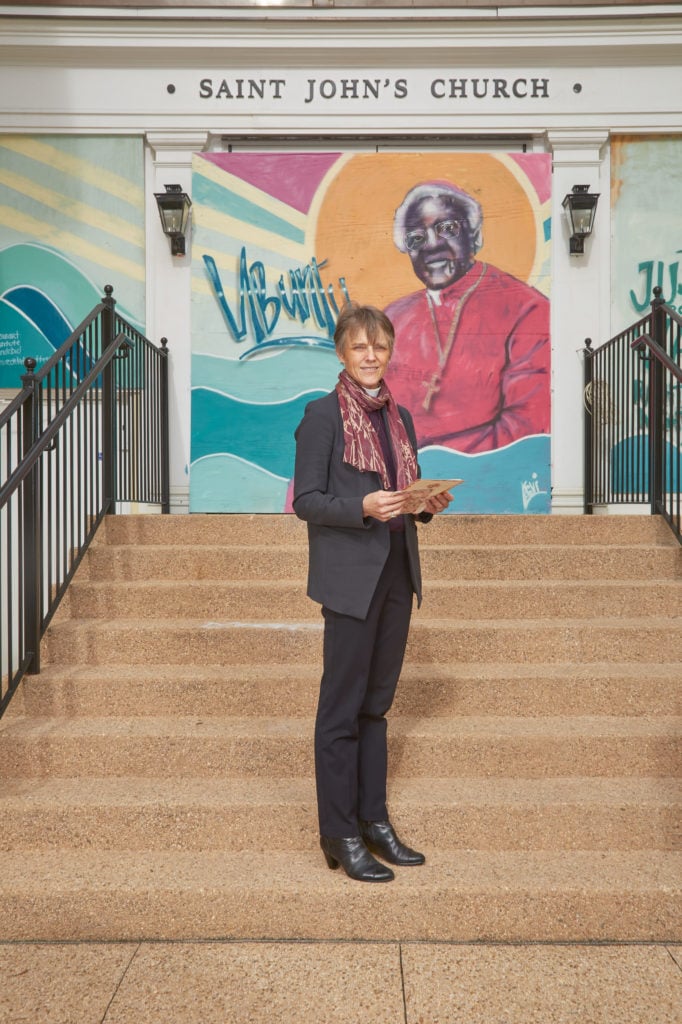
When President Trump cleared Lafayette Square to use St. John’s as a photo op, there was a lot of anger and pain. How did you find healing and gratitude after that?
That was a very troubling period, and we were trying to be a presence of calm and solidarity and love in the midst of all that. Where the gratitude came from, for me, was the overwhelming response from people all across the country. I have stacks of cards and letters from people who were grateful for a witness who spoke of a rightful use of our sacred texts, and [who had] a willingness to hold up a different vision of who we are as a country.
What is gratitude to you?
It’s not simply a response to the nice things that happen but a disciplined way of living your life so that we are constantly observing and seeking out the good. So that we aren’t overwhelmed by sadness or evil but we remind ourselves through daily practices that there is a source of goodness and love in a world that is stronger than hate, stronger than meanness, stronger than evil.
Back to Top11. Tim Kaine, Senator
US senator from Virginia, who had a mild case of Covid-19 in April
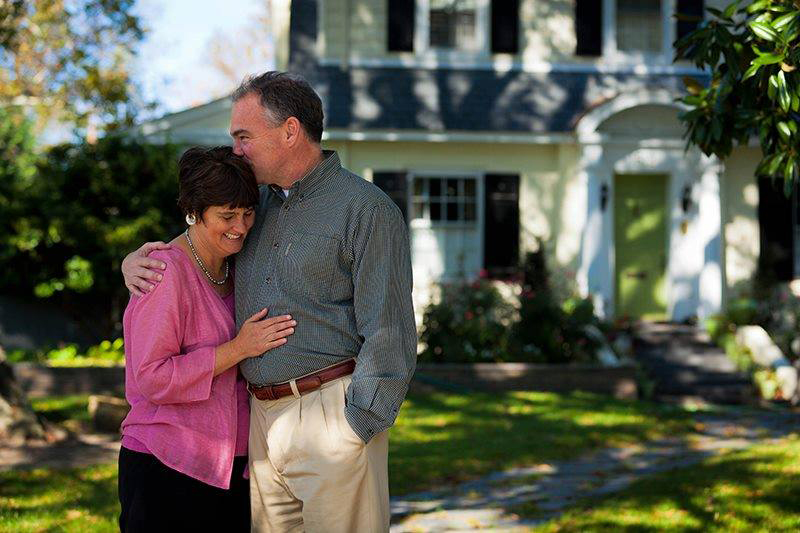
How did surviving Covid change the way you think about gratitude? Are there things you used to take for granted that you now have a deepened gratitude for?
My wife and I had Covid and quarantined together in Richmond. With the Senate out of session, we were together for 38 days, just the two of us. We would have breakfast in the morning, each work in separate parts of our house, find time for a walk or bike-ride every day, and then make dinner and find something fun to do at night. We watched movies we always wanted to see, played cards, listened to music. We realized—after 36 years of a busy marriage, both working and raising three children—that it was the most uninterrupted one-on-one time we’ve ever had. We loved being together, even in the midst of such a challenging time.
Back to Top12. Laurie Thompson, National Zoo
Assistant curator of pandas at the zoo, which successfully bred a male panda cub this year
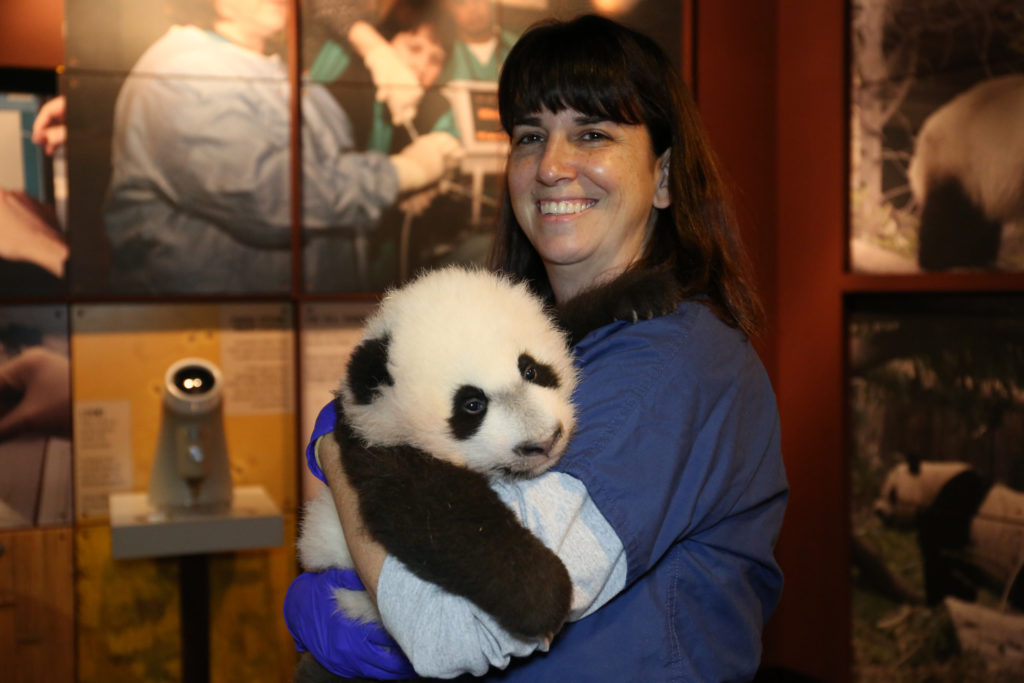
Your team is responsible for perhaps the only good thing that happened in 2020. Is there anything about this year you’re thankful for?
Obviously, I’m grateful for our panda cub, but I’m grateful for having this job, because while a lot of people were stuck at home, I got to come to work and see pandas.
Back to Top13. Kadija Ismail, Student
High-school student whose Change.org petition helped compel the Fairfax County School Board to change the name of Robert E. Lee High School to John R. Lewis High School
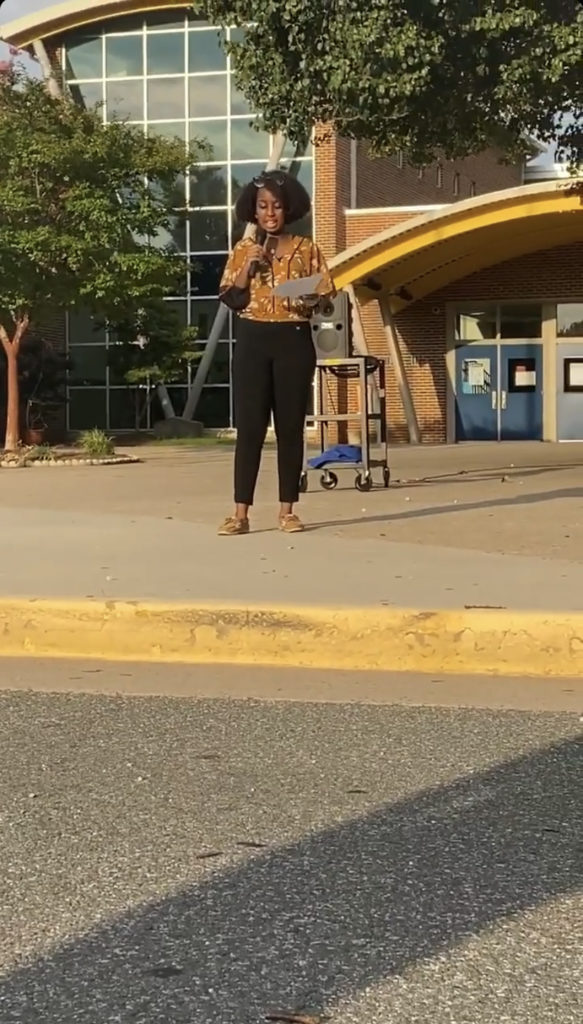
What are you grateful for?
I’m grateful for the outcry of the community, especially during the public hearing that really got the name change recognized. Because 100-and-something people showed up. And the number of people that signed my petition—it was more than 1,000 people in one day.
Is there a way you regularly practice gratitude?
I’m Muslim, so I’ll pray as a form of gratitude. At the same time, I’m actively grateful—I’ll do tasks of cleaning the house and doing an extra chore so my mom doesn’t have to work as hard, just to give back because my parents gave so much to me.
Back to Top14. Maria Manuela Goyanes, Woolly Mammoth Theatre Company
Artistic director at the theater, which has been shuttered since March
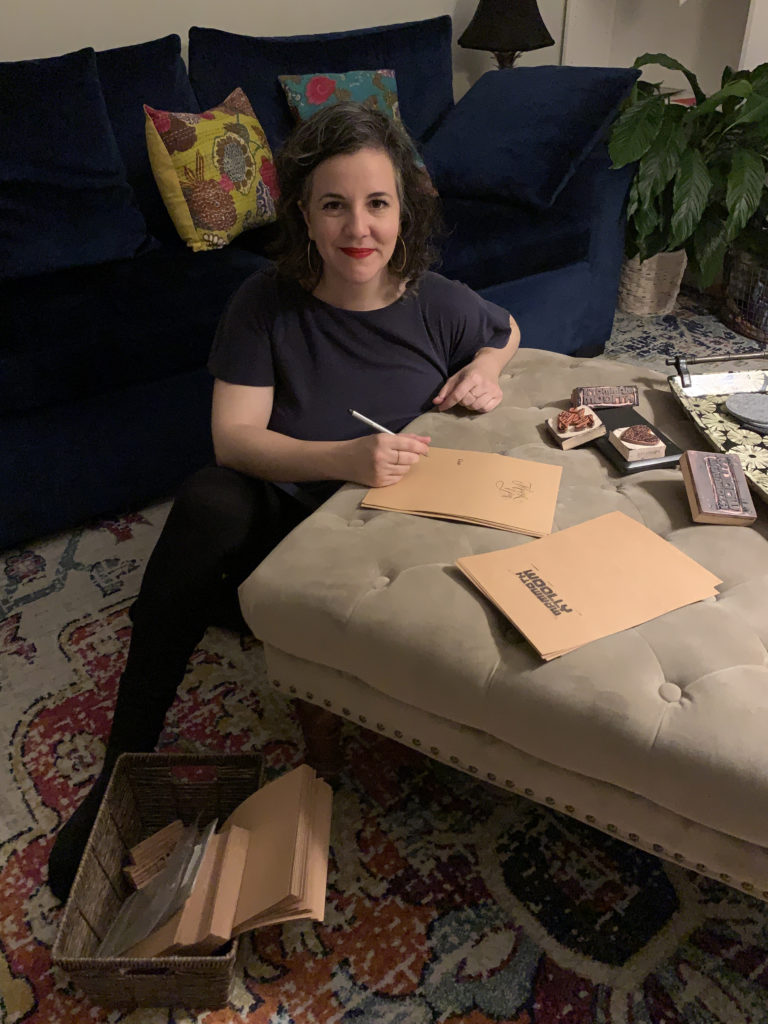
What ways have you been showing gratitude this year?
I have been spending hours writing thank-you notes. Normally I don’t write notes to somebody who has rounded up their ticket purchase and given a donation for $6, but I am totally writing that thank-you note right now, because I want to tell them this is such a hard moment for so many reasons and we are just really lucky to have them in our corner.
Our costume shop created these Woolly Mammoth rubber stamps, so I got an ink pad and a thank-you stamp. I get these blank cards, and I’ll be on a big old conference call or listening to a webinar and I’ll just be stamping “thank you” over and over and stamping the Woolly logo on all these cards, which I find very meditative. It’s like a gratitude practice. On weekends, I’ll wake up, make a cup of coffee, and take an hour to just write the gratitude to all of these folks.
Back to Top15. Tony Tomelden, Bar and Restaurant Proprietor
Co-owner of the DC whiskey bar Union Trust, the beloved H Street dive the Pug (both closed the entire pandemic), and the restaurant Brookland’s Finest
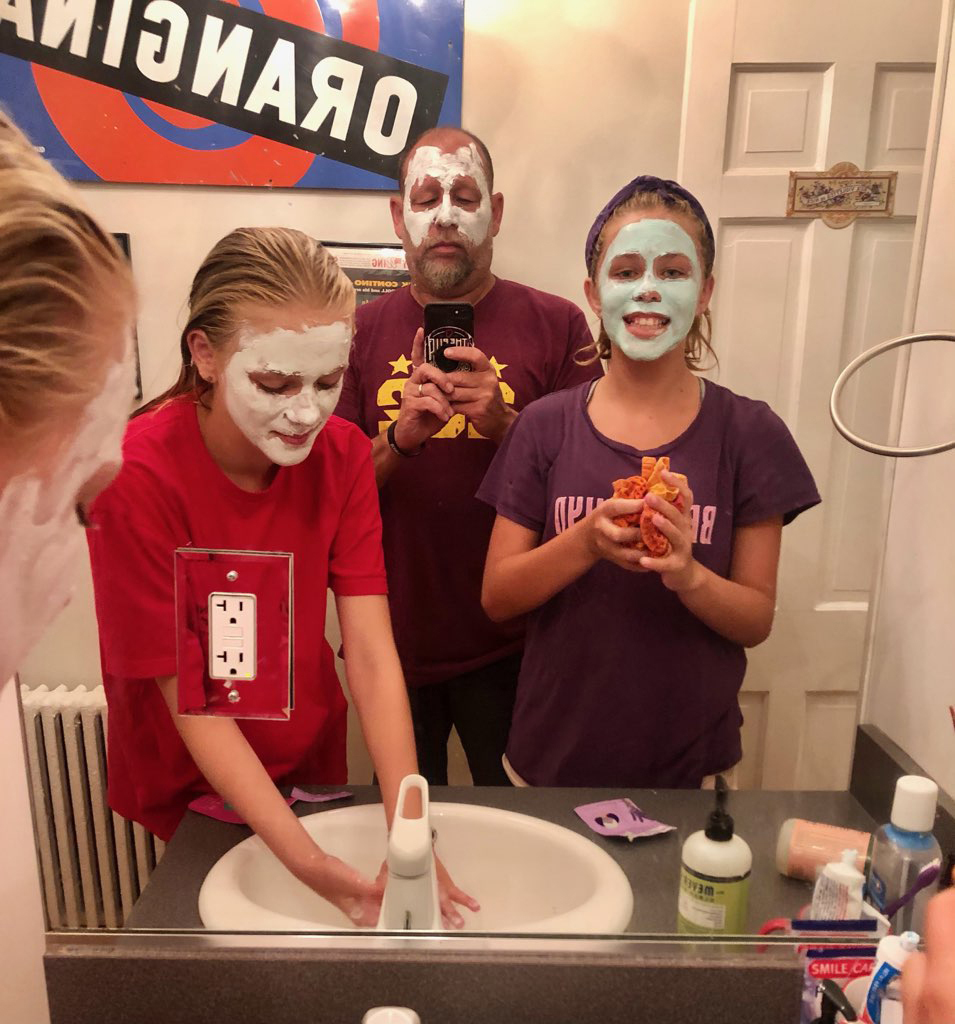
What are you grateful for?
My daughters are 11 and 13. You probably remember that age. They’re on the verge of barely talking to us. We’ve gone on a lot of hikes, and we’ve gotten a lot of—quality time might be a push because they’re basically teenage girls, but we’ve had a lot of time together. I grew up here, right by Fort Washington Park. I loved going to that park. That was the first place we went, the first day in March when the kids got shut out of school. We’ve been to Cosca Park, Chincoteague, Crisfield, Point of Rocks. We’ve gone to parks I loved when I was a kid and parks I never got to go to when I was a kid. It’s been awesome. I’m a big ol’ sap—I save a rock from each hike and label it. One day, if the city doesn’t burn down, we’ll look back on it and think, That was a good hike.
The other thing I’m grateful for: the friends that reach out and check on you. I have guys I grew up with, some who call me once a week to check in. This one guy, he’s offered to send me money, texts me in the middle of night—it’s reaffirming some of my old friendships. You get caught by surprise sometimes by the people that reach out to you. It’s good to have right now.



